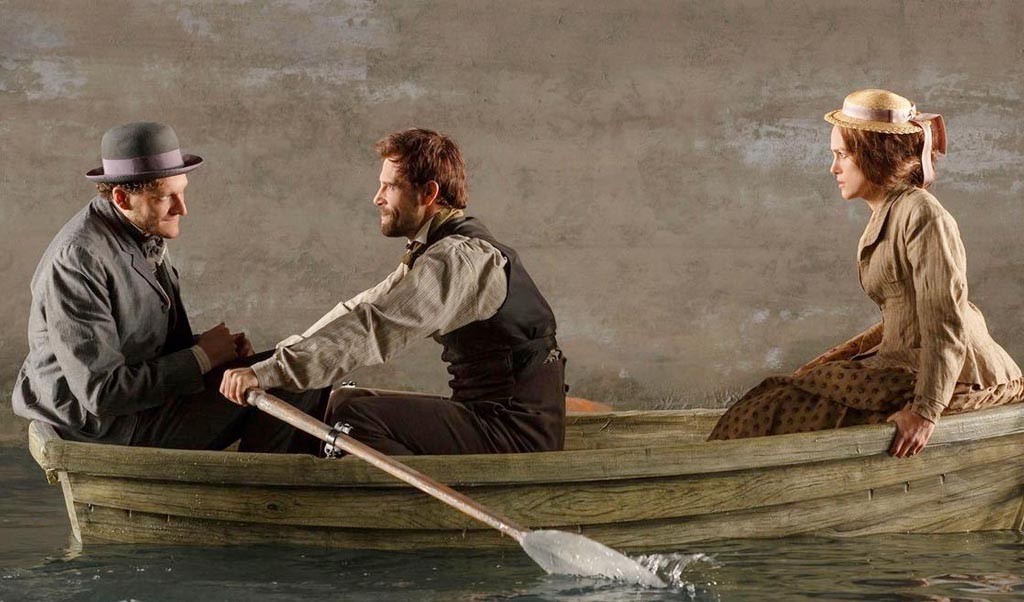To See or Not to See: Thérèse Raquin starring Kiera Knightly

Based on the book Thérèse Raquin by Emile Zola, Roundabout Theater’s stage production, starring Kiera Knightly, is not quite as good as it could have been.
The basic plot line of Thérèse Raquin is enthralling. Therese Raquin is a young woman born to a seafaring father and Algerian chieftain’s daughter, but raised by her father’s prim sister alongside a sickly boy cousin. She is made to marry him when she turns 21, and it is a loveless, stifling marriage. Thérèse yearns to be free. Thérèse, her husband-cousin, Camille, and her aunt, move from their small French village to bustling Paris. There she meets and begins a passionate, frantic love affair with Camille’s new best friend, Laurent. Laurent is an artist at heart and feels the same yearning for freedom that Therese does. As Thérèse and Laurent’s obsession with each other grows, they decide that they need to be together at any cost. Thus begins their rapid downfall.
The production design of Thérèse Raquin was, at times, quite beautiful. Some scenes had very minimal design (typical of recent British theater) with lighting/lighting design being the main set. Other sets were heavily designed–namely, the dark, oppressing Parisian apartment and Laurent’s tiny attic room. A scene in Laurent’s apartment surrounded by nighttime and stars that fades back, literally into darkness as the Raquin’s apartment drops down over it, was one of my favorite transitions.
The cast does a good job with the material they have. Kiera Knightly, whether it was the direction she received, or whether it was the adapted script this production worked off of, played Thérèse a bit too sullenly. I rarely sympathized with her plight and never felt the passion she was supposed to have for Laurent. Matthew Ryan as Laurent was definitely a handsome, appealing partner. He too, however, was lacking in his passion for Therese. Gabriel Engert as Camille was churlish, annoying, and selfish. He played him well. Judith Light also played Madame Raquin well. Overbearing and doting on her only child, Camille, she seems to never see Therese’s emotions or actions.
Since I have not read Zola’s novel, I can’t be certain about my inklings, but I do think the trouble with this production lay in the adaptation and directing. With a little more chemistry and passion between Therese and Laurent (and more of a spark within Thérèse), the actions they take would be much more shocking, full of tension, and emotional.
Verdict: On the fence. If you get cheap tickets, go see it simply for the production design. The plot was intriguing, but not enough to overlook production flaws. This did make me put Thérèse Raquin on my to-read list.


Discussion about this post